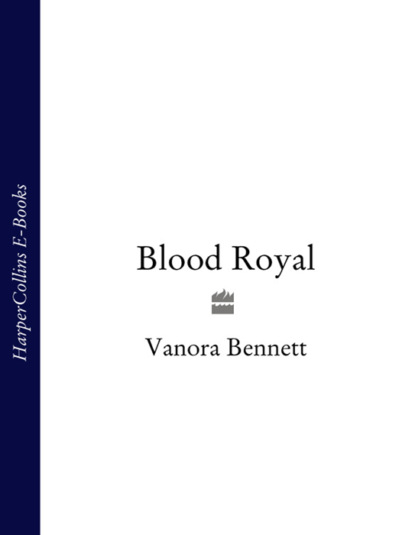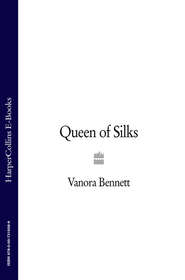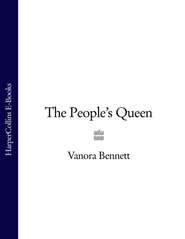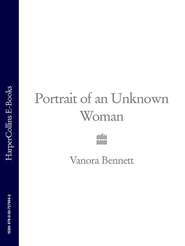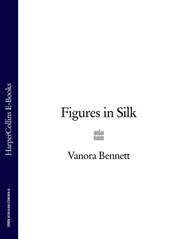По всем вопросам обращайтесь на: info@litportal.ru
(©) 2003-2024.
✖
Blood Royal
Настройки чтения
Размер шрифта
Высота строк
Поля
The French army was waiting for them beyond the woods where they camped. In the last of the luminous grey light, Owain could see the rooftops and drifting smoke of the villages of Rousseauville and Azincourt. ‘They’re behind there,’ his subaltern said, careful to keep fear out of his voice. ‘And over there. And there.’
No one knew how they knew it; no one would say such a thing to his fellows; but it didn’t take long for the knowledge to spread that there were at least three times as many French soldiers over there as there were English over here. And horsemen; hundreds upon hundreds of powerful horsemen; while this little English force was mostly made up of yeomen archers in ordinary leather jerkins, who, apart from their bows, had only the most basic of equipment – axes at their girdles and pikes to force their way into the thickest fighting.
But as the darkness hemmed in the English troops, in the exposed, perilous fields and copses that God and the King had chosen for them, Owain and dozens of other English knights – and Owain Dwn, another Welshman of his own age, the sparkling-eyed grandson of Henry Dwn, a fighter who’d taken Henry of England’s peace – brought forth fire from great steaming bonfires. Owain leaned as close as he dared to the flames, watching the merry orange crackle and spit of them, observing his men stretch arms and rub feeling back into their legs; feeling the despair lift from his own flesh like the damp evaporating from his skin. The earth smelled fresh and full of life underfoot. His subaltern was already supervising the first batch of men who were cleaning and greasing and sharpening blades for the morning. There would be time for everything: time to prepare; to rest; to eat; and to pray, just as there always was with Henry. The smell of sizzling rabbits and game birds rose through the smoke. Priests were passing from encampment to encampment, blessing men in batches. The air was alive with expectant talk and the neighing of horses scenting battle; and everywhere you looked men were singing and stamping their feet to the music. There was no reason to lose hope.
Owain reached into his bag for his box – with pens and ink inside; with pieces of parchment cut small for this life on the move. His other love. The finished poems lay under a cloth; the untouched sheets lay above. He couldn’t write here. It was too muddy, too uncertain. But he’d be comforted, at least, by reading some of the thousands of words he’d penned, in quieter times, about the Rose. He leafed through the sheets.
‘The Lover rides through the darkness,’ he read, ‘in wind, and rain, and pain. But wherever he goes he carries the memory of the Rose in his heart.’
‘We beat them at Crecy, we beat them at Poitiers,’ his subaltern was carolling from the weapons tent; and the men greasing his saddle bawled back, ‘We’ll beat them todaaaay!’ Owain crossed himself at that. But there was a smile on his face. Even that brief glimpse of the inexpert words he’d struggled so hard to compose – and so often got into trouble for wasting his time on – reminded him of the true purpose of his life, even beyond this. ‘Amen,’ he murmured, and, putting the box away, strode into the tent to join in the singing.
Charles, Duke of Orleans, walking into the blackness outside the French commander’s tent to consider the order he’d just been given, wondered how the English managed to make so much noise. They were thundering away over there, singing, eating, drinking, belching, farting, shouting. As far as his eye could guess at shapes, there were French horses tethered by French tents stretched out all the way to the horizon. He knew there must be many, many more French soldiers in these fields than the English could possibly have mustered. But the men he could make out closest at hand – silhouettes gathered round their smoking mounds of embers – were hunched and miserable. There were no musical instruments playing here. (Perhaps the Constable should have let the six thousand men offered by the burghers of Paris come; they might not have known how to fight but they’d probably have been a dab hand at picking out a tune on a pipe. Then again, you couldn’t have city people in a battle; what did commoners know of war?) The French cavalry horses were all but silent. So were the men; though in two or three groups he passed as he wondered what to do he heard gruff voices muttering, ‘bygones be bygones’ and ‘water under the bridge’, and saw stiff, awkward embraces, and understood that old enemies, right across this black field, must be making peace among themselves, before facing death together at daylight.
Although he knew with utter certainty that the flower of French chivalry, assembled here, must beat the English, the Duke of Orleans was surprised, when he looked at his own long, thin fingers – a poet’s hands, his wife called them; war wasn’t his calling – to see they were trembling.
Right is on our side, he reminded himself, reaching for the rosary around his neck. Right is on our side. The flower of French chivalry has assembled to do God’s will.
The Duke of Orleans was a man of simple, straightforward beliefs, or he wanted to be, if his treacherous hands would not betray him. A usurper had come to French shores with a wrongful claim to French lands. God, and the French nobility, under the Oriflamme, would smite him down.
But as his fingers touched the beads, and his lips danced through Ave Marias and Pater Nosters, he found himself trying not to remember all those long-ago battles when the French nobility had been destroyed by a cruel God’s favour for the English armies of earlier kings.
And when he thought of his order for tomorrow – the order just given him by the Constable of Albret, who was to be commander for the day, because the King himself couldn’t be on this battlefield – he couldn’t help the prickling of his scalp that he couldn’t believe was fear.
He wasn’t going to obey that order, of course. No one but a king had the right to order a prince of the blood royal to do anything less than heroic in battle.
He wasn’t going to stay at the back with his men.
He was going to join the charge.
Charles of Orleans had allowed two grooms into his tent at dawn to put on his armour. Once mounted, he’d cantered down from the royal enclosure to the encampment where his own troop had spent the night. No fires; it was too far from the woods; the men’s faces were as grey as the skies. Their leather sallets were soaking and looked as heavy as his glittering breastplate. He thought: The subaltern’s not up to it. He should have found them better shelter. But he contained his irritation and politely told the subaltern to take charge of the men on his behalf during the battle. ‘I will be in the charge,’ he said impassively; choosing not to see the man’s look of fear.
Now, with a gauntleted hand over his eyes to keep the day’s early drizzle out, he was standing in the shelter of an outcrop of trees on a slight swell of land, watching the other army rouse itself below. His spirits were higher than they’d been all night. The English force moving around like ants in the mud was much smaller than all that noise in the night had suggested. He could hardly see any horses. The English were encircled; in visible danger; they must be discouraged at the sea of French soldiery facing them. And their tents were grey and brown with mud; none of the magnificence there of the French equipment. He doubted their weapons and their tired campaign horses were much good either.
Owain was part of the group of knights called to the King’s tent at break of day to hear Mass. Owain had dozed a little by the dying fire – he half-remembered being happy in the dream, and feeling the butterfly kiss of eyelashes on his skin and yielding female flesh in his arms – but the damp streaks of colourless light that he’d seen on the horizon as he startled back into wakefulness, signalling time running out before it all began, filled him with dread. He was grateful for the armour that hid his pale face and racing heart. But, standing in front of the King’s stained tent, he was heartened by the sight of Henry, looking far younger than his twenty-eight years, with every sinew of him hard and ready, pulling on his metal plates, cursing ruefully – ‘bloody hands shaking; it’s the excitement, always like this’ – then devoutly bowing his head in prayer and taking the Sacrament in his mouth.
We’re all afraid, Owain thought, reassured. He knows that. Even he is. Fear is natural. Nothing to reproach myself with.
Yet Henry showed no more signs of fear. He got up calmly on his grey charger and gave orders to each of the knights. Owain’s troop was to be in the rear of the charge. Infantry to take the lead; follow up the arrows. Archers in flanks to left and right.
Then the King rode off among the men saddling horses or strapping quivers and axes on themselves, stretching bowstrings taut, restringing them, testing the blades of weapons wrapped in old rags to keep out the damp, binding up their feet. Every few minutes he stopped to talk, leaning down over his horse’s great thick powerful neck, and what he said, in that brisk, no-nonsense, calm voice, with a hint of a laugh in it, was the same for every group of soldiers he addressed. You can see the danger we’re in; the only way out is to win. Owain, back with his own men, making sure they were properly armed and ready before mounting his own dappled horse, strained to hear that beloved voice as hard as every other knight and footsoldier. And, in his heart, he joined their nervous cheers at that first mention of victory. The cheers got louder and more confident when Henry said, in a rhythmic, swinging echo of the song they’d been singing in the night: ‘Don’t forget – we beat them at Crecy! We beat them at Poitiers!’ Every now and again, some bright spark would yell back, ‘We’ll beat them todaaaay!’ And the King would clap him appreciatively on the back, and move on.
But Owain’s heart, like that of every other English soldier, almost burst with devotion and breathless pride when Henry, having reached the front of the camp, first pointed out the jostling mass of French horsemen, ready to be off over there, yelled a few more words of encouragement to the entire English force, then swung off his horse.
On foot, with his sword held high in front of him, he roared to the joyful infantrymen crowding behind him, ‘Henry! Henry!’, and, without Owain quite having understood that the battle was beginning, led them in a surging charge over the soggy ground towards the French.
It was still raining. Water dripped into Charles, Duke of Orleans’ eyes from his helmet. He was running through the October woods, panting like an animal, as wet under his armour as everything in the watery gloom outside. He was running through branches looming out of the fog like outstretched arms, hooking at him, hooking at his sword.
He couldn’t breathe. He stumbled; stopped; crawled into the doubtful safety of a leafless bush; and lay there, shutting out the world with arms over his head, sobbing in air, feeling the boom of his heart against his breastplate, not listening to the noises behind him.
He knew what he’d see if he looked back again. A grey-brown writhing hell of dying men, with Englishmen crawling all over them. He knew what he’d feel, too: a grey-brown horror of shame.
His men would be back there somewhere, still.
He should have stayed with them.
All the princes of the blood should have stayed with their men.
But none of them had. They’d all ignored the Constable’s orders. They’d all left their men. They’d all jostled to the front line in their heavy armour, kicking and whacking and hacking at each other to get a place. They all wanted the glory.
He’d felt the glory, all right: when the horn had sounded and his horse had surged forward at a furious gallop, thundering over the mud, with its red and gold caparison flying, while he crouched over the pommel, jaw clenched, eyes narrowed, ready for combat, ready for death. There’d been glory surging through his veins like alcohol; a red haze in front of his eyes.
But only for a moment.
Then his horse had sunk into the mud under him.
He’d managed to roll free. But it was a long, dazed moment before he’d got shaking to his feet, leaning on his lance. His knee hurt.
It was only then that he saw the charge was over. All the other horses were down in the mud, too, wherever he looked, hundreds of them, squealing and screaming and flailing their damaged legs. And some of the screams were human.
With all the mud and drizzle and confusion, and everything so grey and brown, Charles of Orleans hadn’t understood straight away what was happening. Then he’d seen an arrow shaft land squarely in his horse’s chest. Its feathered tip quivered. Pegasus rolled his head and rolled his eyes and died.
The English weren’t charging. There was death in the air. The death of common men. The sky was full of yeomen’s arrows.
He’d sheltered behind Pegasus’ warm body disbelievingly, waiting for the danger to pass. Still calm; able, for a moment, to despise the enemy’s failure to engage as the laws of chivalry demanded. It was only when he’d seen the grey and brown ants crawling out of the distant fields and tents and swarming towards him at such speed that, before he knew it, they became thickset English rustics wielding axes and pikes, led by a terrifying glinting war god in glittering armour, and heard the blood-curdling yells of, ‘Henry!’ and ‘St George for merry England!’, that Charles, Duke of Orleans, grandson and great-grandson of kings of France, whose veins coursed with the noble blood of Charlemagne and Brutus, panicked and ran for his life.
The news of Azincourt spread through France like the bitter autumn wind; the rains battering the windows felt like tears. Ten thousand Frenchmen had died and fifteen hundred been taken prisoner. Among the dead were the King’s commander for the day, the Constable of Albret, and his two brothers, the Duke of Bar and the Duke of Alençon. The young Duke of Orleans, who’d written such lovely poetry in the style of Madame de Pizan, was a prisoner. So was the Duke of Bourbon, the Count of Richemont, the Count of Eu, and Marshal Boucicault. The sound of weeping drifted out of every open window. In just three hours, Paris had become a city of widows. There wasn’t a noble house in France left untouched by the tragedy.
Even the Duke of Burgundy – who had not volunteered for the King’s army, and who had locked his fifteen-year-old son up to stop him running away to fight – had lost two brothers.
The city whispered. The people of Paris could sense weakness in their rulers. Even in their grief, the mourners sensed trouble would be coming their way soon.
TWO (#ulink_0431dd22-a75f-55ea-b64e-b01c78872651)
Catherine was at Mass with her parents when the messenger came.
There was a scuffle at the door. Then a dozen heads were pushed inside. ‘Sire,’ the voices said. The priest looked up through the incense at the expectant eyes. The King looked away. Catherine could feel how much her father, who was still frail and slow-moving as he convalesced from his bout of illness, didn’t want to be interrupted. ‘Sire,’ the voices said, insistently.
It was clear to all of them that it must be bad news. Catherine could feel her heart quicken. Catherine’s mother wheezed and heaved herself up. She put a hand out to the King, who was staring at his hands. ‘Afterwards? Surely?’ he said piteously, indicating the priest and the chalice; but she only said impatiently, ‘Come,’ and began tugging at his arm.
When they told him, he did nothing. It was the Queen who rushed out of the room, with big tears pouring down her face, yelling, ‘Call the council!’ and ‘Send word to Prince Louis to come!’ and ‘Why weren’t we informed earlier?’ and ‘Condolences to the widows! A list of ransoms! Mass at Notre Dame! Full mourning for the court!’ The messenger and the courtiers rushed after her, remonstrating or agreeing or making busy suggestions; a wind of noise and importance. But King Charles just sat, with empty eyes, on his bench.
Timidly, Catherine reached out her hand and put it on his trembling liver-splodged one. Her head was spinning. She’d danced with Charles of Orleans only last week. He’d told her about his war horse. Pegasus, he’d said easily: the closest thing to a winged horse on this earth. He’d smite the King of England to the ground with his hoofs alone. ‘It’s my dream to bring him down myself in the thick of battle, with a single blow of my sword’. Catherine had admired the ambition. Charles of Orleans had been wearing blue velvet sewn with pearls. Now she was trying to imagine him in chains, being marched through the mud to Calais and roughly embarked on an English ship, but found that her imagination failed her. This couldn’t be real. There must be a mistake.
Her father twitched his head and said nothing.
‘It’s hard to believe,’ Catherine murmured; stroking his papery skin; remembering how just a few years ago her father had lifted her into the tree she could see through the window, roaring with laughter. How strong he’d been then. How young. He seemed like an old man today. He didn’t seem to be listening.
‘It will be all right, Father; you mustn’t worry …’ she ventured. He was shocked, she thought. How hard it must be to bear the burden of all this on your own shoulders; how heart-breaking to be a king in times of trouble. ‘We’ll raise the ransoms. We’ll get everyone back. Henry of England isn’t a bad man. He knows the law of war. Even if it takes time …’





